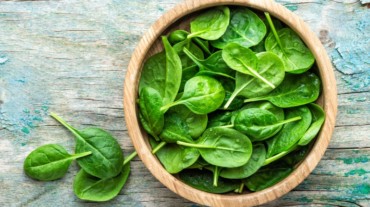
Monsoon has brought along some relief from the scorching summer, but it is also a season for several health woes.So, it’s only smart if you stay conscious and cautious about everything around you – from keeping your house clean and from disinfecting anything that comes into the house to make sure to eat right!
That would include avoiding foods susceptible to bacteria build-up or even holding your horses when it comes to gorging on deep fried foods like samosas and pakoras, and sometimes street foods like chaat, bhel puri and more!
The temperature and humidity of the monsoon season are conducive to bacterial and fungal growth, especially on green leafy vegetables. This can lead to stomach infections. Spinach, fenugreek leaves, cabbage, cauliflower, etc are not vegetables that you should eat during the monsoon. Instead, go for pungent vegetables like bitter gourd, ghiya, tori, and tinda.

You must avoid seafoods like fish and prawns during the monsoon. Wonder why? Well, there are two main reasons. First, the presence of pathogens and bacteria in the water during the rainy season may infect the fish, and thereby the person consuming it. Secondly, this breeding season causes several changes to occur in seafood which can cause harm.
Also, read: Monsoon can’t mess up with your health if you consume these 5 foods daily
While it is perfectly fine to indulge in fried foods like kachoris, pakoras, and samosas once in a while, you should take care of the portion you eat because excess consumption can upset your stomach in several ways, causing indigestion, diarrhea, and other issues. So, restrict yourself from excessive eating those fried foods.

Humidity and sweating tend to dehydrate you. So drink plenty of water to stay hydrated but avoid fizzy drinks because they can weaken your digestive system and can reduce the minerals in your body. You can also have hydrating drinks like nimbu pani and jaljeera.
Mushrooms grow in damp soil and can have bacterial growth which increases the risk of infection once consumed, especially during the monsoon season. So it is better to say no to mushrooms in the monsoon!
Also, read: Feeling the monsoon blues? These 6 iron-rich foods can boost your energy
Eating raw foods offers an instant entry to pathogens that will ultimately take a toll on your well-being with bacterial and viral infections, while cooking meals help kill harmful bacteria.
Select Topics of your interest and let us customize your feed.
PERSONALISE NOW
Having curd in the monsoon season could prove to be harmful to the body because of the cool nature of the food. In fact, if you’re already suffering from sinusitis, then strictly stay away from this dairy product.
While avoiding these foods during the rainy season, you must also consume some foods in moderation.
This deep fried sweet is mostly available in the monsoon, coinciding with the festive season of Teej. This dessert is prepared with ghee, flour and sugar syrup, and this humid weather provides the right sponginess to it. Ghevar is especially not good for diabetics, heart patients, and those aiming to control weight. Have a bit of it only for the taste.
Also, read: Healthy snacking on your mind? Try out Pooja Makhija’s sweet and salty healthy crackles
Extra salt may lead to water retention in the body and other factors such as sluggishness, unnecessary hunger pangs, and feeling weighed down. So, eat them in moderation.

Avoid street foods like chaat, gol gappe, bhel puri, and dahi puri because these foods can be easily contaminated.
So ladies, be extra cautious during the monsoon to avoid getting sick.